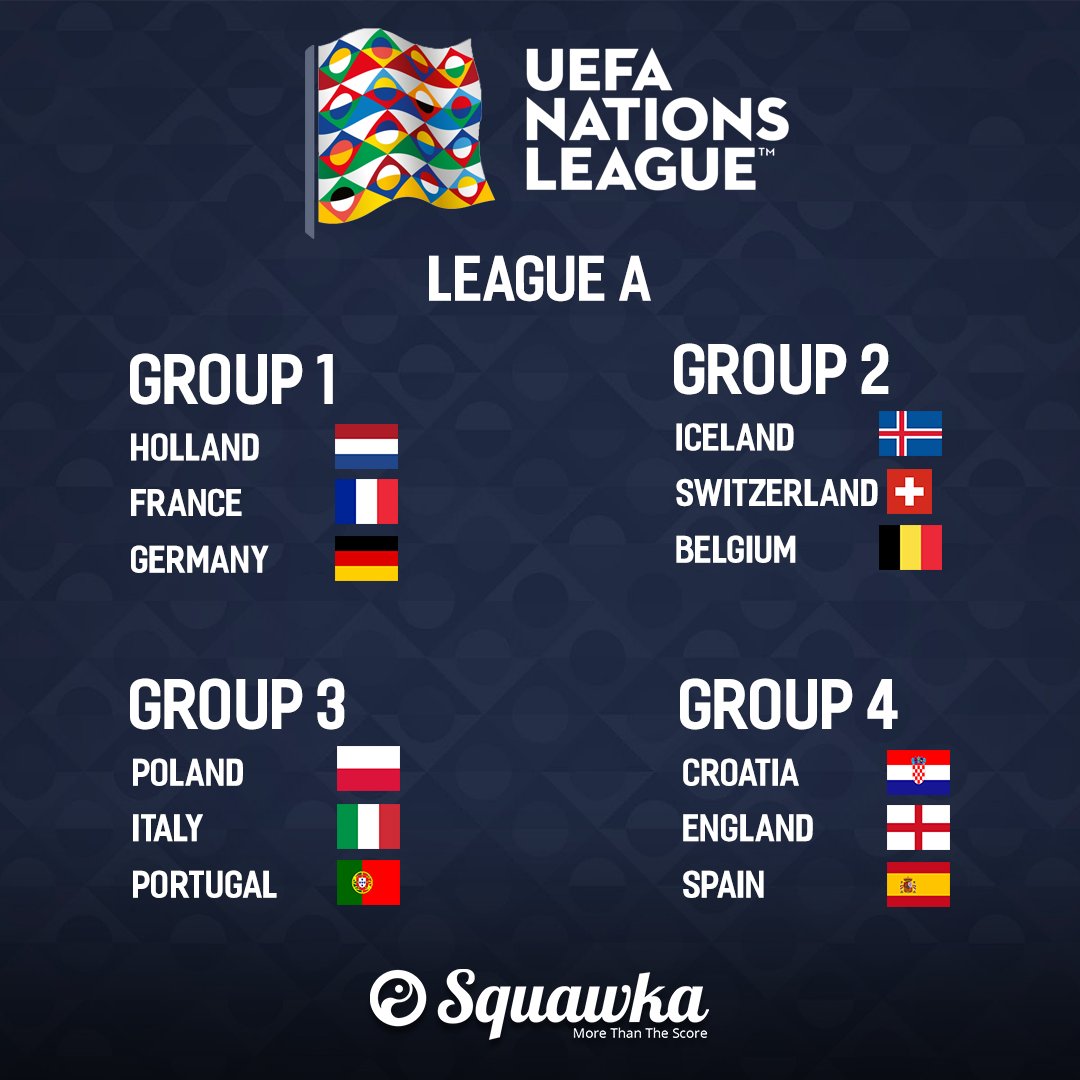
We’re back in the thick of the international break, so for those still confused as to what the Uefa Nations League is exactly, we’ve got you covered.
The brand-new competition is in its second round of fixtures, with Germany facing the Netherlands this Saturday.
It pits 55 European national teams against each other in four ‘leagues’, consisting of four groups and makes for some interesting ties.
World Cup winners France, Germany and the Netherlands occupy one group while there will be a repeat of 2018 World Cup qualifying as Wales, Denmark and Republic of Ireland all face each other in the ‘second’ tier.
And while some fans are excited about the prospect of top-tier international football, as frustrations were beginning to grow over the international breaks, others might be yet to properly get their heads around the new format.
Why have Uefa brought it in? Will it replace the European Championships? What does it mean? These are just a few of the questions asked since the draw in January. Well, if you found yourself confused, wonder no more. Squawka is here to help you understand the Uefa Nations League.
How does the Uefa Nations League work?
Brought in to replace a large number of international friendlies surrounding the usual major competition qualifying stages, the Uefa Nations League will take place once every two years, scheduled within the existing international football calendar, and put national teams up against countries of a similar ability.
The new tournament will also offer a bigger incentive for the lower-ranked nations, who will be guaranteed a play-off spot to try and qualify for Euro 2020 should they top their groups.
The draw split the 55 Uefa nations into four Leagues by their ranking (A, B, C and D), and four groups (1, 2, 3 and 4) of either three or four teams.
The draw was held on 24 January, the results of which were:
Uefa Nations League A:

Uefa Nations League B:
Uefa Nations League C:
Uefa Nations League D:
In each group, the teams will play each other home and away in fixtures scheduled for September, October and November 2018.
When all games have been played, the four group-winners in Leagues B, C and D will gain promotion to the league above.
Similarly, the four bottom-placed teams in Leagues A, B and C will be relegated to the league below.
The four group winners in League A, however, will qualify for the Uefa Nations League Finals set to be played in June 2019, in one of the participating countries. This is dubbed the Final Four showpiece and consists of two semi-finals, a third-place play-off and the final to determine the winner of the first ever Uefa Nations League.
How does the Uefa Nations League affect European Championship qualifying?
While the qualifying group stage for Euro 2020 will still go ahead, the inception of the Nations League will affect the timeline.
Instead of starting directly following the World Cup as it had in previous years, qualifying for Euro 2020 will now begin in March 2019 and run until November 2019.
Split into 10 groups of five or six, the winner and runner-up of each qualifying group will automatically earn their place in Euro 2020: that’s 20 places.
The final four spots in the special multi-country edition of the European Championship will be settled via a play-off system linked to the Nations League.
The four group-winners in each League (A to D) who have not qualified for Euro 2020 through the official and traditional qualifying stages will take part in the play-offs in which the 16 teams fight for the final four spaces.
If, for example, League A do not have enough teams left who have not already qualified, then the remaining spot(s) in their play-off path will go to the next best-placed team in League B.
Split, once again, into four groups in separate play-off paths – determined by their leagues – the four teams will take part in single-legged semi-finals and then a final to decide who will be joining the initial 20 teams at Euro 2020.
The better-placed side in each semi-final will be given the advantage of playing at home, while the destination of the finals will be determined by a draw.
This new play-off format will guarantee one of the teams in League D a place in Europe’s major international tournament.
Uefa Nations League Timeline:
Matchday 1: 6–8 September 2018
Matchday 2: 9–11 September 2018
Matchday 3: 11–13 October 2018
Matchday 4: 14–16 October 2018
Matchday 5: 15–17 November 2018
Matchday 6: 18–20 November 2018
Nations League Finals draw: early December 2018
Nations League Finals: 5–9 June 2019
Uefa EURO 2020 play-off draw: 22 November 2019
Uefa EURO 2020 play-offs: 26–31 March 2020
The post What is the Uefa Nations League? How it works, groups and fixtures appeared first on Squawka News.
From Squawka NewsSquawka News https://ift.tt/2NIf8zH





No comments:
Post a Comment